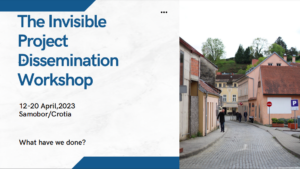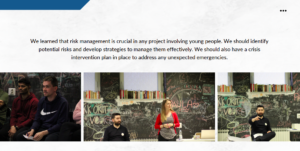Erasmus+ Youth Training Project “The Invisible” Completed in Croatia
Youth workers participated in the Erasmus Youth Education project “The Invisible” coordinated by trainer Umut Acar and Andreja Ausperger between 12-20 April 2023 in Samobor, Croatia.
This project is focused on developing the knowledge, skills and attitudes of youth workers, leaders, project coordinators, mentors and all interested parties working with youth in youth work on risk management and crisis intervention in the inclusion of young people with chronic health problems. Risk management plans for invisible diseases that do not have visible signs from the outside, but in which the person spends mental and physical energy in the civil war and may have difficulty in fulfilling daily tasks, were prepared with group studies, different ice-breaking activities were applied. In this project, youth workers aimed to support participants from this target group and to make the projects safer and more fun for everyone
During the training session, we learned that young people have different needs, expectations, and abilities. As trainers or mentors, it is essential to be empathetic and understand the perspectives of young people. They are looking for opportunities to learn, grow, and develop their skills. It is our responsibility to provide them with the resources and guidance to help them achieve their goals.
One of the key takeaways from the training session is that preparation is essential. We must take the time to plan and organize our projects carefully. This includes identifying potential obstacles and developing strategies to overcome them. We should also create a detailed action plan and set realistic goals.
Group work was an integral part of the training session. We learned that working in a team can help us achieve our goals more efficiently. When working in a team, we should learn to listen to other team members, provide constructive feedback, and work collaboratively to achieve our goals.
We learned that not all illnesses are visible. It is essential to understand that young people with invisible illnesses may have unique needs and require additional support. As trainers or mentors, we should be aware of these needs and provide appropriate support.
We learned that misconceptions and prejudices can be barriers to achieving our goals. As trainers or mentors, it is our responsibility to challenge these misconceptions and create an environment that is inclusive and welcoming to all.
Team building was another key takeaway from the training session. We learned that team building can help us work more effectively together and achieve our goals more efficiently. As trainers or mentors, we should take the time to develop team-building activities that are engaging and effective.
We learned that risk management is crucial in any project involving young people. We should identify potential risks and develop strategies to manage them effectively. We should also have a crisis intervention plan in place to address any unexpected emergencies.







